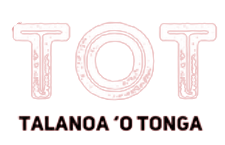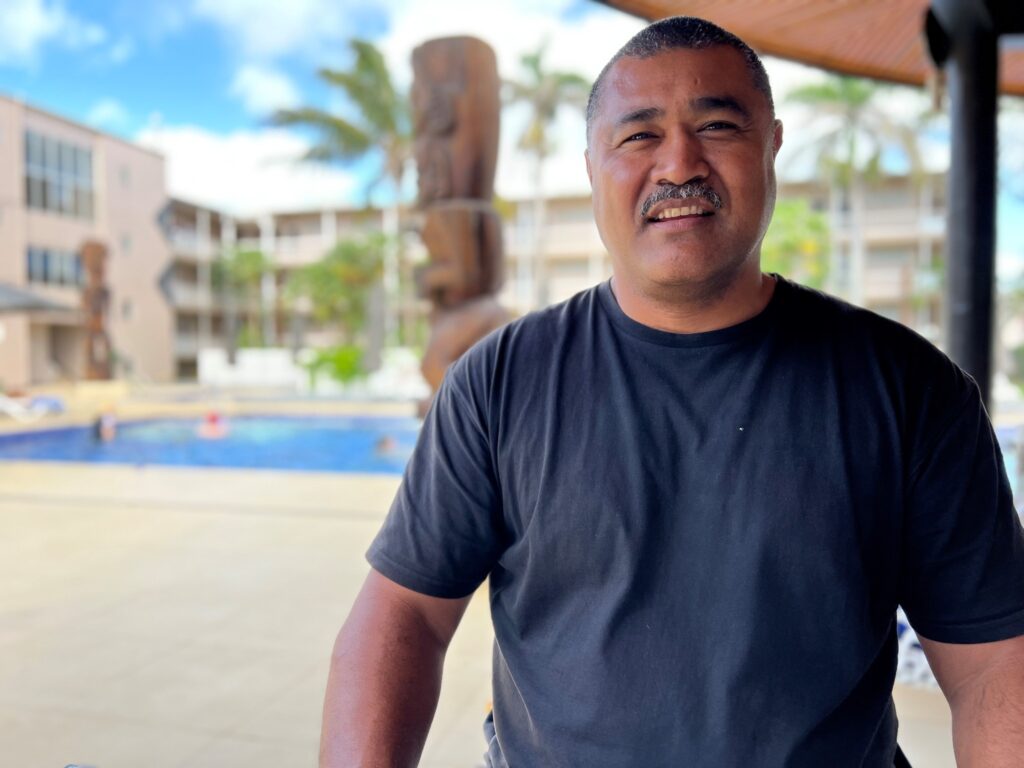“My father played rugby for ‘Īkale Tahi so he got recruited to go play in Brisbane, Australia. That was in 1975 and then me and my mum followed 6-8 months later.
I’m the eldest of 6 kids. All my brothers and sisters were born in Brisbane so I was the only one born in Tonga. We were all encouraged to speak English and I lost my Tongan language speaking quickly. I can understand it now; I speak a little bit but not much.
Growing up in Brisbane, rugby was predominantly a middle to upper class sport so we encountered a lot of racism when we grew up but my father always taught us to have thick skin and move on, so we did. It was a predominantly white society so it took a while for them to get used to it.
We were pretty much the first group of Polynesians that went there. There was a whole new flood of Polynesians after us. There’d been sporadic ones before us but only for study, not big families moving over.
I think when he first moved there, Dad didn’t really understand or was aware of the impact it would have on our family. He came over with a group of guys and they were young. They had no education, no money, and knew no English.
For them to come there in a predominantly white society and with all the issues of not understanding how Western culture works, I think it’s pretty brave and courageous.
Back then, he would’ve thought it’s just a chance to go overseas and play rugby but it’s been the best thing that’s happened to us. It’s given us a whole new life and the opportunity to live a good life and have a family. Being in Australia gives you a lot of opportunities so we’re very grateful for my father for making that move.
Personally for me, the game of rugby has given me a wonderful life. It’s raised my kids, put a roof over our head, and put food on the table. I’m still in that rugby industry so I’m forever in debt to rugby and forever grateful for it.
The highlight of my career was definitely playing for the Wallabies but coaching rugby had made me a better communicator. I finished coaching in Japan in 2016 and as soon as I got back, there was an opportunity to coach here.
I didn’t really want to take it initially but after talking it over with my wife, I decided to take it. I’ve been here ever since. I was very nervous at first because I grew up in Australia.
You don’t really consider yourself Australian but you also don’t really consider yourself Tongan either so you’re in the middle and you just battle your way through that.
I think coming back to do the job got me reconnected with the culture and learn more about the language. I also had a lot of knowledge from playing and coaching so I wanted to give back as well.
Navigating through Australia and the Tongan culture has been quite interesting. Being Tongan has allowed me to show a different part to another culture apart from being just an Australian. To navigate between the two takes a lot of compromises, a lot of understanding and communication.
We are who we are. I’m Tongan so there’s no change in that. I was in-between but I accept that a great part of me is Tongan and a great part of me is Australian and I’m really both.
Since the coaching role, I’ve come back pretty much every year and the first place I go to is where I was born. I still have my uncle living in my grandparent’s house and a cousin living in my other grandparents’ house.
I always go there and hang out for a little bit and chill out. I like to walk the roads there and reflect on Mum and Dad and where they grew up.
Now, I’m proud to have both. I can relate strongly to my Australian side which I love. It has given me opportunities and has given all Tongans who migrated the same opportunities.
But I never forget where I’m from. I was born in a little shack in Longolongo and that’s where my people are.”
Source: Australia High Commission in Tonga – Stories of Partnership with Tonga




